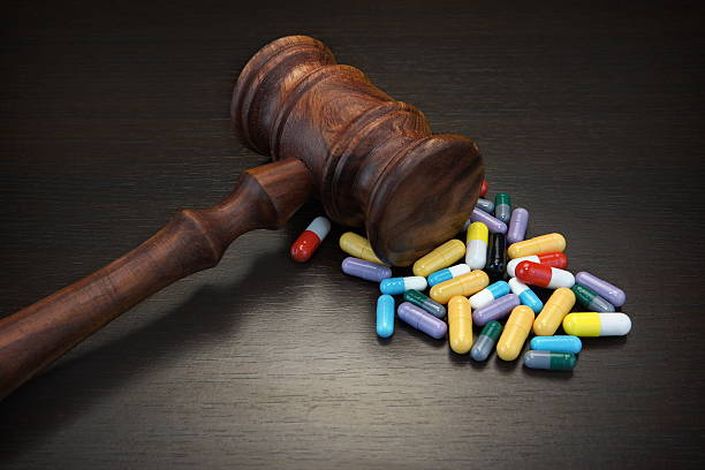Click to download Course Brochure
Introduction
SOP in laboratory is one of the top-most priorities for professionals. Starting from freshly hired interns to seasoned researchers – a standard operating procedure maintains the uniformity of the lab for every worker.
This is specifically important to handle critical chemicals during drug manufacturing process. For instance, hazardous chemicals like carcinogens, acutely toxic chemicals, and reproductive toxins need to be handled with care.
This seminar focuses on avoiding any instance of non-compliance and empower professionals to curate a well-written SOP in pharmaceutical industry.
Course Overview
As the name suggests, an SOP in laboratory is a detailed document that consists of meticulous steps to be followed by the professional. The core purpose of this document is to streamline the workflow in laboratory. However, it is not sufficient to know SOP in laboratory by heart.
An SOP training plays an essential role in certifying that every professional can develop a standardized protocol for the laboratory. This will not only prevent errors and risks, but make it easier for everyone to implement a task accurately.
No matter how simplified a procedure is, the laboratory must have an SOP for every step, including cleaning and maintenance of the area.
Below are some benefits of learning about SOP in laboratory:
- Clearly describe the roles of each professional in the laboratory and department
- Create a uniform structure for every task keeping risks and errors in mind
- Understand the theoretical and practical aspects of following SOP in pharmaceutical industry.
- Learn to identify the variations and implement damage-control measures in the laboratory.
- Be thorough in protocol updates alongside writing and implementing the standard operating procedure.
- Keep the laboratory well-equipped to follow and implement each SOP to the fullest
A training on SOP in laboratory is becoming popular in the recent years because of the need to reduce PI involvement in each process. Moreover, it is hectic for both workers and PIs to assess each procedure in a detailed manner every time.
An SOP in manufacturing also helps in scaling the experiment with low or no errors. This SOP training is designed by keeping in mind the strenuous circumstances a professional might face. This includes:
- Working alone in a laboratory
- Performing overnight operations
- Handling or automating unattended procedures
- Using toxic chemicals or gases without contaminating or causing any damage
- Handling large-scale experiments with precision
- Managing highly reactive experiments.
Below is the agenda of this SOP training to help you understand the content of the course in detail.
Training Agenda
Day 01
Session 1
- What is the intention and role of SOPs?
- What tasks require SOPs?
- How the network of SOPs within the Lab support each other?
- How is an SOP structured/ formatted?
Session 2
- What are the compliance requirements for an SOP?
- Descriptions of the roles and responsibilities of people in the SOP process.
Session 3
- Description of the various standard methods.
- The Regulatory Compliance Method.
- The Scientific Published-Literature Method.
- The Industrial Standard Method (ASTM and ISO methods).
- How to assess if a standard method can be used as is as the SOP?
- Conversion to an acceptable SOP from a standard method.
Session 4
- How to create an SOP?
- The SOP for a new task.
- The SOP for a new methodology.
- The SOP for a Standard method.
Day 02
Session 1
- The Interplay within the lab to improve the draft SOP.
- Reviewing the first attempt.
- Iterations and how to assess the reaching of compliance.
Session 2
- The Implementation of the SOP.
- Training, The Documentation of Initial Training and the On-Going Proficiency testing as a Requirement.
Session 3
- Monitoring and Assessing the SOP for Needs of Changes.
- Modification, Updating, and Revising an SOP. When should an SOP be revised?
- Revising the SOP and Its Documentation and Approval.
- The Use of a Method Timeline to Track Changes.
Session 4
- The Requirements in Archiving and Documentation.
- Which SOP is to be used when?
- Other requirements that must be included: Facility requirements, purchasing guidelines, safety issues methods of reporting (and standard forms and information to be reported).
Who will benefit from this course?
This course is for every professional working in the laboratory. However, the authorized signatories can certify themselves so that the entire department can work in a streamlined manner. Below are some professionals who will benefit from this training on SOP in laboratory:
- Managers & Supervisors: Assess the quality of work and guide beginners to keep the protocol uniform in all the steps.
- Quality Analysts & Internal Auditors: Makes it easier to figure out loopholes and bridge the gaps before the final FDA or EPA inspections.
- Scientists & Research Associates: As a principal investigator, you will be able to direct the entire course of experiment for the team.
People Also Ask
Q1 Why is it essential to learn SOP writing?
SOP writing is an important part of work for laboratory professionals. While there are plenty of generic SOPs, it is essential to write a customized protocol as per the laboratory requirements. In case of any missing information, the laboratory or manufacturing unit could lose its license.
Q2 Is this course beginner-friendly?
Yes. This SOP training is absolutely designed for people aspiring to pursue their careers in R&D and manufacturing units of pharmaceutical industry. No matter at which tier of laboratory you belong, the SOP writing techniques are uniform for every lab.
Q3 Shouldn’t SOPs be written by laboratory assistants only?
No. As a professional working in large-scale manufacturing units, you must know the SOP writing techniques to handle variations in the experiments. Even though you are well-versed in simulating the process, it should be documented as per the regulatory norms.

Know Your Faculty
Founder and Principal of Consultant Fetzpahs Consulting
Mr. John C. Fetzer holds 30 years of experience in handling large-scale laboratory experiments. Starting from methods development to coming up with novel protocols – he understands the core of laboratory procedures. Moreover, working on GLP protocols for FDA compliance and building an efficient team is an added experience he offers during the SOP training.





